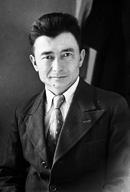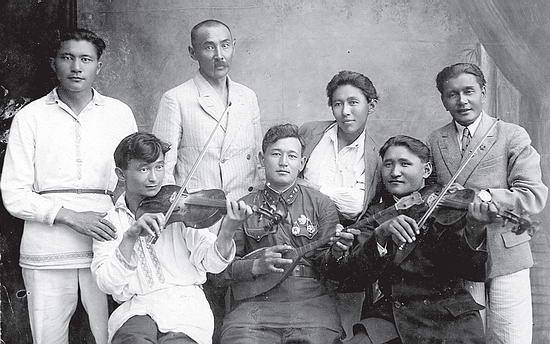NUR-SULTAN – Kazakhstan might be a young country celebrating the first 30 years of its independence, but its history and culture go beyond these 30 years. On Oct. 10, Kazakhstan marks 110 years since the birth of prominent poet and writer Kassym Amanzholov.

Amanzholov is known to have introduced the ten-syllable line into Kazakh verse. For the first time, he used the alternation of eight- and nine-syllable lines, which was convenient for conveying conversational intonation.
Born in 1911 in the Karkaraly district of the Karaganda Region Amanzholov’s life was not an easy one from early childhood. He lost his parents at an early age and was raised in an orphanage.
Before beginning his career as a journalist in 1932, he studied in a veterinary school and agricultural institute in St. Petersburg. Amanzholov became known as a poet in 1931, at age 20, when he published his first poems. His first book – a collection of poems called “Omir Syry” (Confessions of Life in Kazakh) telling about the life and work of the poet’s peers – came out seven years later.
But it was not until 1945 when the Great Patriotic War began forcing millions of young men, including Amanzholov, to give up on their professional ambitions and join the Soviet Army that some of the poet’s most famous poems were written, including “Death of a Poet” reviving the memory of Abdulla Zhumagaliyev, a young Kazakh poet who died at the front.
During the war years, Amanzholov spent days traveling from the Far East to the Western Front in 1943, and these long journeys between the fronts, while crossing his homeland, birthed such poems as “Ural”, “Saryarka”, and “Baikal.”
These poems rose to a different level with new content, theme, type, means of artistic expression, depth of thought, and the feelings.
Following the end of the war, he worked in the editorial offices of several magazines. In 1946 alone, he wrote 26 poems, including “Dostar” (Friends in Kazakh), “Tugan Jer” (Homeland in Kazakh), “Dombyra”, “Mai Keldi” (May has come in Kazakh), among others.
The next year, however, Amanzholov became sick, but despite his worsening health, he continued writing and translating some of the world’s famous poems into Kazakh.

Kassym Amanzholov (front row, left) with friends. In the center – prose writer and translator Zhardem Tlekov. Uralsk, 1930.
Over the years, Amanzholov experimented with different styles from traditional zhyrau (tales in Kazakh) and tolgau (reflections in Kazakh) poetry to feuilletons and one-act satirical plays.
Amanzholov died in the prime of life at age 43. After his death, his works were published in three volumes, and in 1958, selected poems were published in Moscow.
“The poet considers the truth of life transformed into the truth of art as a striving for eternity, as an achievement. He is connected with the people with all his heart, so his poetic ‘I’ is perceived by the reader as something of his own, understandable and close. Pushkin once noted that a true poet is interesting for readers in all states – cheerful, sad, or in love. Amanzholov, as a poet, is seen in different states, and in all of them, he excites us with his fullness of emotions and depth of thought. His poetry shows us examples of the diversity of human experiences,” wrote Taken Alimkulov, a famous Kazakh writer, in his introduction to Kassym Amanzholov’s poetry collection published by the Moscow-based Art Literature Publishing House in 1975.
As Alimkulov wrote, Amazholov’s poetry will allow “our children to see how their fathers thought, felt and lived” representing a “chronicle of his time.”
“Universe! Light spacious home!
I am a small dot in your space.
I have no time to go around your expanse,
Compared to eternity we live a moment.
People to come! Kassym sees you.
You walk the earth as a palace of gold.
I shall lie beneath the earth at this time,
Wrapped forever in the earth’s blanket.
How many wrinkles the earth has on its face,
My footprints are now under the ground…”
(author’s loose translation from Amanzholov’s poem “About Myself”)

